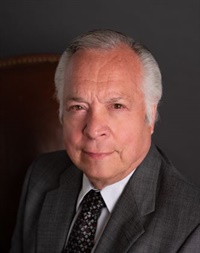Why Auditors Fail To Detect Fraud
Total Credits: 2 including 2 Auditing- Technical
- Average Rating:
- 65
- Categories:
- Accounting and Auditing | ACPEN Industry Institute
- Faculty:
- Dennis F. Dycus, CFE, CPA, CGFM
- Course Levels:
- Intermediate
- Duration:
- 2 Hours
- License:
- Product Setting: Expires 30 day(s) after program date.
Description
Prior to the original SAS No. 82 on Consideration of Fraud In A Financial Statement Audit (now codified as SAS No. 122, AU 240), the word fraud never appeared in a single SAS, nor was it described anywhere. SAS No. 82 stated that auditors failed to detect fraud for two reasons: 1) They did not know what it looked like and 2) They had not been trained to look for it. Although the SASs did not provide any guidance, auditors have always been responsible for the detection of anything that would cause a material misstatement of the financial statements whether caused by error or irregularities. (They would not even say the word fraud until it appeared in SAS No. 82) The standards were replete with guidance on the detection of an error but silent on how to detect irregularities. Now auditors are required to document in every financial statement audit their process of determining the risk of financial misstatement due to fraud.
This presentation is designed to focus on frauds that were missed by the auditors and, in some cases, why it was missed. There will also be discussion as to what the auditor must do in order to improve their track record on detecting fraud. As reported on the Association of Certified Fraud Examiners Occupational Fraud 2022: A Report to the Nations, only 4% of frauds were initially discovered by the external auditor. It was reported that more frauds were discovered by accident, (5%) then was discovered by the external auditor.
Basic Course Information
Learning Objectives- Understanding the importance of developing and maintaining professional skepticism
- Evaluating the Tone At the Top
- Determining intent
- Obtaining an in-depth knowledge of your client’s operations
- Recognizing red flags related to fraud
- Looking for what should be there
- Looking for what should not be there
- Identifying unusual transactions
Major Subjects
- Reasons auditors fail to detect fraud
- Willful Ignorance
- SAS No. 82
- Additional documentation
- How and who to talk to
- Determining the Tone At the Top
- How to Determining Intent
- If you expect it, you will see it
Course Materials
| Important CPE Credit Instructions_READ BEFORE WEBCAST UPDATED (442.7 KB) | Available after Purchase | ||
| WhyAuditorsFail_Handout (19.9 MB) | Available after Purchase | ||
Faculty

Dennis F. Dycus, CFE, CPA, CGFM Related Seminars and Products
Mr. Dennis F. Dycus, CFE, CPA, CGFM, presently serves as the Director of the Division of Municipal Audit for the Office of the Comptroller of the Treasury, State of Tennessee. The Division is responsible for the annual audit of all municipalities, utility districts, school activity and cafeteria funds, housing authorities, certain not-for-profit organizations and other quasi-governmental entities in the State of Tennessee. In addition, the Divisions staff conducts numerous audits for fraud, waste and abuse each year.
From the beginning of his career with a national accounting firm, through the last 37 years of involvement with the audits of all forms of governmental entities, he brings a wealth of practical experience to his presentations. A graduate of Western Kentucky University, Mr. Dycus is a frequent guest speaker/lecturer for various college business/accounting classes, professional associations, local, state and national conferences and not-for-profit organizations. In 1996, the Eta Omicron Chapter of Beta Alpha Psi presented him with the Distinguished Alumnus Award in recognition of his support of the WKU Accounting Department.
A 1986 graduate of the Tennessee Government Executive Institute, Mr. Dycus is an active member of the American Institute of Certified Public Accountants where he previously served on the Members in Government Committee, the Ad Hoc CPE Curriculum Task Force on Government and the National CPE Curriculum Subcommittee. He is also a member of the Tennessee Society of Certified Public Accountants, the Association of Government Accountants, where he previously served as chapter president; the Government Finance Officers Association, and the Association of Certified Fraud Examiners, where he also served as chapter president and is a former member of both the Associations Board of Regent and ACFE Foundation as well as a member of their instructor faculty on a national basis. In June, 2005, the Middle Tennessee Chapter honored him with the designation of president emeritus in recognition of his longstanding contributions to the chapter.
For the last several years, Mr. Dycus has developed and/or conducted training programs in all fifty states, Puerto Rico, Guam, Canada and Europe, for organizations such as the Association of Certified Fraud Examiners; the American Institute of Certified Public Accountants; numerous state CPA societies; the Government Finance Officers Association; the Association of Government Accountants; the National Association of State Auditors, Comptrollers and Treasurers; Westcott Communications, Inc.; the Organization for Security and Co-Operation in Europe; New York Presbyterian Hospital; IBM; HCA; NYC Presbyterian Hospital, Saturn, Inc.; the US Department of Labor; the Government Accountability Office; the Internal Revenue Service; Bisk Education, Inc.; Nichols Education, Inc.; numerous state audit organizations and individual professional firms. He is a frequent speaker at various professional conferences, both on a local and national level.
In 1989 and again in 1997, he was the recipient of the AGA's, National Education and Training Award and has been presented with several Outstanding Discussion Leader Awards by both the Tennessee and Florida Societies of Certified Public Accountants. In 1998 he was honored with the Association of Certified Fraud Examiners, Distinguished Achievement Award for his meritorious service in the detection and deterrence of fraud and in 2001 was one of only three individuals to receive the designation as a Fellow of the Association of Certified Fraud Examiners in recognition for his contribution to expanding the Associations body of knowledge toward the detection of fraud. In 2003 he was the recipient of the Tennessee Society of CPAs first ever, Outstanding CPA in Government Award and in 2004 received the Association of Certified Fraud Examiners Outstanding CFE in Government Award. In 2009 he was recognized as a Friend of the Association by the Tennessee Association of Utility Districts for his contribution to the utility industry in Tennessee. This was only the second such recognition the association had made in its 52 year history.
In addition, he has authored articles on auditing for fraud for national publications.
Dates
|
Wed, Jan 15, 2025 - 12:00pm to 01:50pm CST
|
|
Fri, Jan 31, 2025 - 08:00am to 09:50am CST
|
|
Fri, Feb 07, 2025 - 10:00am to 11:50am CST
|
|
Sat, Feb 08, 2025 - 10:00am to 11:50am CST
|
|
Wed, Feb 19, 2025 - 12:00pm to 01:50pm CST
|
|
Wed, Mar 12, 2025 - 08:00am to 09:50am CDT
|
|
Tue, Mar 25, 2025 - 06:00pm to 07:50pm CDT
|
|
Fri, Apr 04, 2025 - 12:00pm to 01:50pm CDT
|
|
Thu, Apr 17, 2025 - 08:00am to 09:50am CDT
|
|
Tue, May 13, 2025 - 10:00am to 11:50am CDT
|
|
Wed, May 28, 2025 - 12:00pm to 01:50pm CDT
|
|
Sat, Jun 07, 2025 - 10:00am to 11:50am CDT
|
|
Mon, Jun 09, 2025 - 08:00am to 09:50am CDT
|
|
Tue, Jun 17, 2025 - 06:00pm to 07:50pm CDT
|
|
Fri, Jun 27, 2025 - 12:00pm to 01:50pm CDT
|
Additional Info
Basic Course Information
Prerequisites NoneDesigned For
Financial Auditors; Internal Auditors; Financial Administrators
Original Recording Date 10/2022
Course Developer Dennis F. Dycus
Date Added to Catalog 09/20/2022
Yellow Book No
Additional Information
Complaint Resolution PolicyPlease contact Anne Taylor for any complaints. anne.taylor@acpen.com, (972-377-8199).
Official Registry Statement
Business Professionals' Network, Inc. is registered with the National Association of State Boards of Accountancy (NASBA) as a sponsor of continuing professional education on the National Registry of CPE Sponsors. State boards of accountancy have final authority on the acceptance of individual courses for CPE credit. Complaints regarding registered sponsors may be submitted to the National Registry of CPE Sponsors through its website: www.nasbaregistry.org
Instructional Delivery Method
Group Internet Based
Course Registration Requirements
Online Registration
Refund/Cancellation Policy
Please contact the ACPEN help desk 1-877-602-9877 or help@acpen.com if you wish to cancel your attendance for a previously purchased webcast and are requesting a refund or transfer.
Promo Video
Reviews
| 5 |
|
| 4 |
|
| 3 |
|
| 2 |
|
| 1 |
|



